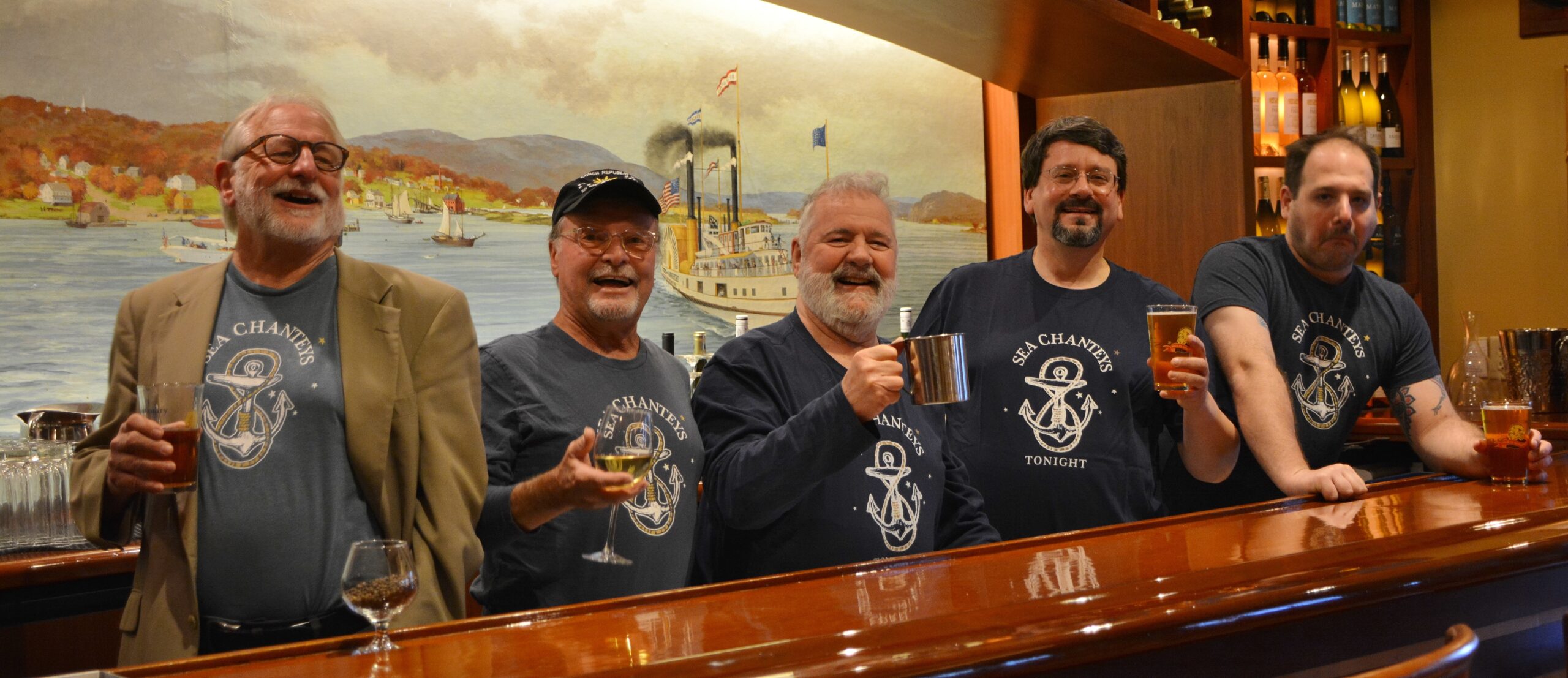Cliff has sung this for as long as we all have known him, and it is often associated as a “Cliff Haslam song” in the general sea music crowd. On Cliff’s website, he writes, “This was a capstain chantey used for raising the anchor. The mention of “railway” is influenced by men working on the railway then making their way on board ship. “Moke” was a term for a black person at that time. I got this song from Wickford Express.“
Recently, as a folk music festival, another singer had told Cliff and me she had done the research and that “old moke” was actually a term for an old man and not exclusively a racial reference. Some time later, in conversation with David Littlefield, I related that tidbit. David decided to do a little research himself, and a week later informed me that he had discovered that the word comes from Old English and references a donkey, or more to the point, a slow and seemingly dull donkey. However, it became a slang term in the form of “moke” or “jamoke” for a slow, dim-witted person, and fairly quickly became applied to black people certainly in the early 19th century, commonly used in this fashion before the 1850s. Joshua Slocum, in his 1890 book The Liberdade, notes that he found people using the word “moke” to refer to people who were native to the Bahamas, although it isn’t clear if it was derogatory or a casual colloquialism. The reference found is in chapter 15 and the passage is : “Photographers at Mayaguez desiring a picture of the canoe with the crew on deck at a time when we felt inclined to rest in the shade on shore, put a negro on board to take the place of captain. The photographs taken then found their way to Paris and Madrid journals where, along with some flattering accounts, they were published, upon which it was remarked that the captain was a fine-looking fellow, but “awfully tanned!” The moke was rigged all ataunto for the occasion, and made a picture indicative of great physical strength, one not to be ashamed of, but he would have looked more like me, I must say, if they had turned him back to.” Now, in Hawaii, the word refers to anyone perceived as what we might call a “redneck”, irrespective of their skin tone, and in today’s street slang in the cities, it’s a casual term for one’s penis! Thank you, David!
Jos. Morneault
He-bang, she-bang, daddy shot a bear
Shot ‘im in the stern, me boys, and never turned a hair.
We’re from the railroad, too-ra-loo
Oh, the old moke pickin’ on the banjo.
cho: Hooraw! What the hell’s a row?
We’re all from the railroad, too-ra-loo
We’re all from the railroad, too-ra-loo
And the old moke pickin’ on the banjo!
Pat, get back, take in yer slack. Heave away, me boys;
Heave away, me bully boys, why don’t ye make some noise?
We’re from the railroad, too-ra-loo &c.
Rock-a-block, chock-a-block, heave the caps’n round,
Fish the flamin’ anchor up, for we are outward bound.
We’re from the railroad, too-ra-loo &c.
(Roll her, boys, bowl her, boys, give ‘er flamin’ gip,
Drag the anchor off the mud, an’ let the barstard rip!) [we forgot this verse]
Out chocks, two blocks, heave away or bust,
Bend yer backs, me bully boys, kick up some flamin’ dust.
Whisky-O, johnny-O, the mudhook is in sight,
‘Tis a hell-of-a-way to the gals that wait, an’ the ol’ Nantucket
Light;
In the video interview below, Jackie Gleason uses the word “moke” not in a racial sense but such as “an ordinary guy, however troubled”. It comes about the 7:28 mark, but you should listen for a minute or so before to get the context.

